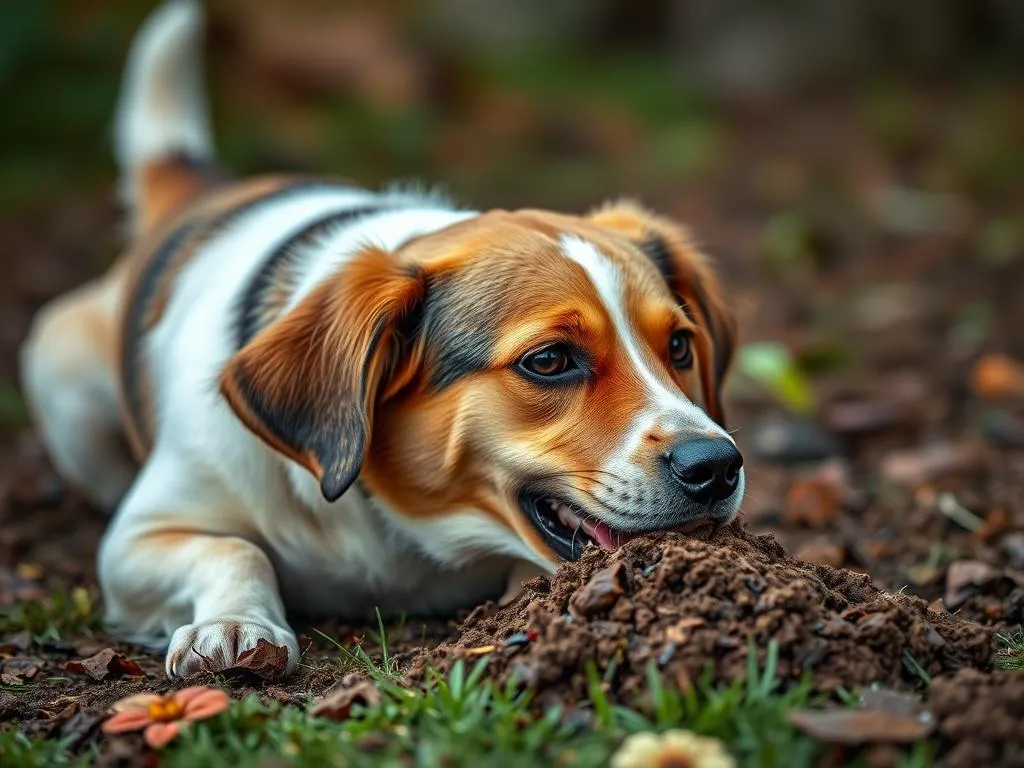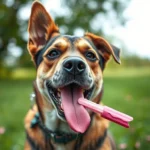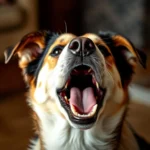
Introduction
As dog owners, we often find ourselves puzzled by the peculiar behaviors of our furry friends. Understanding these behaviors is essential for nurturing a healthy and happy relationship with our pets. One behavior that frequently raises eyebrows and concerns is coprophagia—the act of eating feces. If you’ve ever wondered, “why does my dog eat their own poop?”, you’re not alone. This behavior, while distressing to many owners, is relatively common and can be rooted in various factors, ranging from instinctual drives to health issues. In this article, we will delve into the intricacies of coprophagia, exploring its causes, implications, and ways to discourage this behavior effectively.
Understanding Coprophagia
Definition of Coprophagia
Coprophagia is derived from the Greek words “kopros,” meaning feces, and “phagein,” meaning to eat. It refers to the behavior of consuming feces, which can occur in various species, including dogs. While it might seem bizarre, it’s crucial to distinguish between normal and abnormal behaviors of this nature. For instance, puppies may engage in coprophagia as part of their exploratory behavior, while adult dogs may do so out of stress or health concerns.
Prevalence Among Dogs
Studies suggest that coprophagia is prevalent in approximately 16% to 30% of dogs, with variations based on factors such as breed and age. For instance, some breeds, like the Labrador Retriever and the Dachshund, are more prone to this behavior. Younger dogs tend to exhibit coprophagia more often than older dogs, possibly due to their natural curiosity and lack of learned boundaries.
Reasons Why Dogs Eat Their Own Poop
Instinctual Behavior
One of the primary reasons dogs engage in coprophagia is rooted in their ancestral instincts. In the wild, dogs and their relatives, such as wolves, often consume feces to keep their living area clean and to avoid attracting predators. This instinctual behavior ensures that they maintain a hygienic environment and mark their territory effectively. For many dogs, especially those with strong survival instincts, this behavior can be a remnant of their evolutionary past.
Nutritional Deficiencies
Another reason dogs may partake in coprophagia is nutritional deficiencies. If a dog’s diet lacks essential nutrients, they might instinctively seek out alternative sources, including their own feces. Common deficiencies that can lead to this behavior include:
- Protein: Dogs require adequate protein for overall health, and a lack can trigger a search for additional sources.
- Vitamins: Deficiencies in vitamins such as B vitamins can lead dogs to consume feces, as these vitamins are present in the fecal matter.
- Minerals: Essential minerals like calcium and phosphorus found in feces may attract dogs who are lacking them in their diet.
Behavioral Issues
Several behavioral issues can lead to coprophagia as well. Dogs experiencing anxiety or stress might resort to this behavior as a coping mechanism. Similarly, some dogs may eat poop to gain attention from their owners, especially if they notice that their owners react strongly—whether positively or negatively—when they engage in this behavior. It can become a learned behavior, where the dog seeks attention through this action.
Medical Conditions
Certain medical conditions can also contribute to coprophagia. Conditions such as parasites, diabetes, or malabsorption syndromes can lead to increased appetite or altered digestion, prompting a dog to eat feces. If you notice a sudden change in your dog’s behavior or an increase in coprophagia, it’s essential to consult a veterinarian to rule out underlying health issues.
Environmental Factors
A dog’s living environment can significantly influence their behavior. Dogs that live in stressful conditions, such as overcrowded spaces or environments lacking stimulation, may resort to coprophagia out of boredom or anxiety. Changes in routine, such as moving to a new home or the arrival of a new family member, can also trigger this behavior. Ensuring a stable and enriching environment is vital for minimizing stress-related behaviors.
How to Discourage Coprophagia
Training Techniques
One effective way to discourage coprophagia is through training techniques that utilize positive reinforcement. Here are some strategies to consider:
- Redirect Attention: If you catch your dog in the act, use commands like “leave it” or “come here” to redirect their attention. Reward them with treats or praise when they comply.
- Consistency: Be consistent with your commands and training techniques. This consistency will help your dog learn more effectively.
Dietary Adjustments
Improving your dog’s diet can also help mitigate coprophagia. Here are some dietary considerations:
- High-Quality Food: Ensure that your dog is eating a balanced, high-quality diet that meets their nutritional needs. Consult with your veterinarian about the best food options.
- Supplementation: In cases of specific deficiencies, consider adding supplements recommended by your veterinarian. These can help fill nutritional gaps that may be contributing to the behavior.
Environmental Management
Managing your dog’s environment is crucial in reducing access to feces. Here are some practical strategies:
- Immediate Cleanup: One of the simplest ways to prevent coprophagia is to clean up your dog’s waste immediately. This minimizes the opportunity for your dog to consume it.
- Stimulation: Create a stimulating environment for your dog with plenty of toys, exercise, and mental challenges. Regular walks and playtime can help alleviate boredom and anxiety, which can reduce the likelihood of coprophagia.
Professional Help
If training and environmental management do not yield results, you may want to consider seeking professional help. This could involve:
- Dog Trainers: A certified dog trainer or behaviorist can provide tailored strategies to address your dog’s specific needs and behaviors.
- Veterinary Intervention: In cases where coprophagia is linked to medical issues, your veterinarian can offer treatment options.
When to Worry About Coprophagia
Signs of Underlying Health Problems
While coprophagia can be a benign behavioral issue, certain signs may indicate a more serious underlying health problem. Symptoms to watch for include:
- Changes in Appetite: A sudden increase or decrease in appetite can signal health issues.
- Weight Loss or Gain: Significant changes in weight may indicate nutritional deficiencies or metabolic problems.
- Digestive Issues: Symptoms like vomiting, diarrhea, or changes in stool consistency should prompt a veterinary visit.
Behavioral Patterns to Monitor
Changes in the frequency or context of your dog’s coprophagia can also serve as warning signs. Keep an eye out for:
- Increased Frequency: If coprophagia becomes more frequent or habitual, it may warrant further investigation.
- Accompanying Issues: Other behavioral changes, such as increased anxiety, aggression, or withdrawal, should also be monitored.
Myths and Misconceptions About Coprophagia
Common Myths
There are several myths surrounding coprophagia that can lead to misunderstanding the behavior:
- It’s Normal Behavior: While some dogs may engage in coprophagia more than others, it is not considered a normal or healthy behavior.
- It’s a Sign of Hunger: Many dog owners believe that dogs eat feces out of hunger. However, this behavior often stems from other underlying issues rather than a lack of food.
Impact of Misunderstanding
Ignoring the behavior or misunderstanding its causes can have significant consequences. Owners may inadvertently reinforce the behavior by reacting negatively or dismissively. Understanding the reasons behind coprophagia is vital for addressing it effectively and ensuring your dog’s overall health and well-being.
Conclusion
In conclusion, understanding why dogs engage in coprophagia is crucial for dog owners who want to foster a healthy relationship with their pets. By recognizing the various causes—from instinctual behavior to health issues—owners can take proactive steps to discourage this behavior and promote overall well-being. Remember, if you find yourself asking, “why does my dog eat their own poop?”, it’s essential to look at the bigger picture, considering both behavioral and health-related factors. Staying informed and observant is key to ensuring your dog’s health and happiness.









